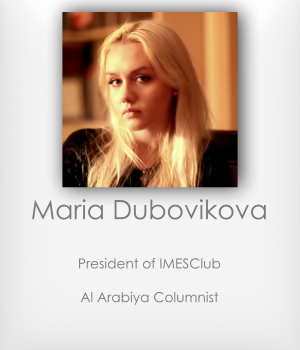 Right after the Russian fighter jet was downed by the Turkish F16 over Syria, most of the commentators expressed confidence that Moscow would not go to escalation over the incident.
Right after the Russian fighter jet was downed by the Turkish F16 over Syria, most of the commentators expressed confidence that Moscow would not go to escalation over the incident.
The reasons they gave were simple. Turkey did not join the Western sanctions following the Ukrainian crisis. Russia depends a lot on Turkish imports, and trade was rising. Russia needs Turkey to avoid gas transit to Europe through Ukraine. Turkey was the number one destination for Russian tourists, and the two countries have a lot of projects in the economic, industrial and energy spheres.
The only point they missed in their analyses, however, was that Russia stopped being properly rational some time ago.
Deterioration of relations
Russia and Turkey had been developing their relations over two years, despite their disagreement over the situation in Syria and future of Bashar al-Assad.
The first signs of a deterioration in relations came right after the launch of Russian airstrikes in Syria. Four days before the downing of the fighter jet, Ankara demanded the immediate cease of operations, and threatened serious consequences in case Russia ignored its warnings.
The Turkish “stab in the back” came with the downing of Su-24, when the deterioration reached its apogee. The red line was crossed. From this point the relations between the two countries degraded, putting the world on a very dangerous path.
Economic interests
It was wrong of political experts, politicians and world leaders to expect Russia to forgive the death of its pilot and the downing of its jet for the sake of economic interests.
Following the huge economic losses as a result of the sanctions imposed on it by its Western counterparts, Russia has started a very risky play on the international stage. What really matters for the Russian leaders now is to defend the image of a powerful, mighty and uncompromising country, ready to bear losses in defending its rightfulness and vital national interests. It is a luxury that not all countries can afford.
From the Russian side the most vital thing in the current situation is to save face and to respond to the Turkish slap in the face. It’s a matter of honor and thus irrational.
Maria Dubovikova
Russia took steps to punish Turkey. It effectively banned outbound tourism to Turkey, which is likely to cost Turkey billions of dollars per year. Many mutually profitable projects across many spheres will be suspended. Russian companies will be banned from employing Turkish citizens from Jan. 1. Many Turkish organisations, including cultural ones, will be closed or their activities will be highly limited by the Russian authorities, and the process has already started.
The cultural ties were the first to feel the blow of the Russian reaction to the Turkish provocation. Many of the measures also cause considerable damage to the Russian economy and interests. Turkey’s move to create difficulties for some Russian ships passing the Bosphorus and Dardanelles is not in Russian interests at all. However from the Russian side the most vital thing in the current situation is to save face and to respond to the Turkish slap in the face. It’s a matter of honor, and thus irrational.
Fight against ISIS
Among other things, Russia accuses Turkey of not playing fair in the fight against ISIS. After the accusations were officially announced, many international journalists from some of the most powerful news agencies – including The Guardian, Financial Times and New York Times – agreed that the accusations were not groundless.
It is globally acknowledged that Turkey is a jihadi hub, and a gateway that provides ISIS with new recruits from all over the world. Calls for Turkey to close its Southern border remain unheard by Ankara, despite Moscow’s accusations.
Turkey prefers to shunt the attention on to other subjects, such as its right to defend itself, as if Russia was menacing Turkey. Nevertheless, the Russian calls for a deeper investigation into the matter remain unheard, and the European Union earlier this week promised Turkey visa-free entrance for its citizens, in return for Turkey helping stem the flow of refugees into Europe. The West cannot afford the luxury of being principled, as the military bases and aerodromes are far more precious than any proof of Turkey's involvement in the ISIS business.
However, the escalation can go too far and can threaten not only the international fight on ISIS, which has just shown the first signs of coordination following the Paris attacks and efforts of the French president, but also global stability and peace. Russia's deployment of its sophisticated S-400 air defence system in Syria, and the presence of Turkish submarines near the Russian cruiser Moskva, have put the world one step away from a full-scale war.
The problem with Turkey for Russia and the international community is its NATO membership. And even if Turkey itself put the world on the doorsteps of the World War III, in case of the further escalation the NATO members will have to take its side.
Such escalation is extremely undesirable for all sides. However the risk of dramatic mistakes from the confronting sides is extremely high. And the risks are becoming even greater, taking into account that now there are too many NATO-member forces involved in the fight against ISIS, and not all of them are going to coordinate with Russia.












